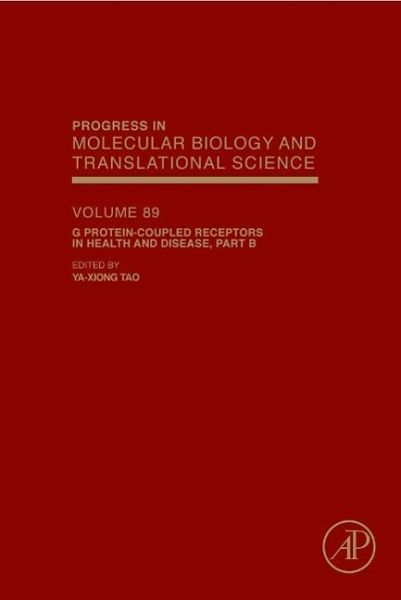
G Protein-Coupled Receptors in Health and Disease, Part B
Volume 89
Herausgegeben: Tao, Ya-Xiong

PAYBACK Punkte
59 °P sammeln!
G protein-coupled receptors (GPCRs) transduce signals from a diverse array of endogenous ligands, including ions, amino acids, nucleotides, lipids, peptides, and large glycoprotein hormones. They are also responsible for our sensing of exogenous stimuli, including photons and odorants. GPCRs regulate almost every aspect of our physiological functions. It is estimated that 40% to 50% of currently used therapeutic drugs target GPCRs directly or indirectly. Because the current drugs target only a small portion of the GPCRs, opportunities for targeting the remaining GPCRs is enormous. This volume ...
G protein-coupled receptors (GPCRs) transduce signals from a diverse array of endogenous ligands, including ions, amino acids, nucleotides, lipids, peptides, and large glycoprotein hormones. They are also responsible for our sensing of exogenous stimuli, including photons and odorants. GPCRs regulate almost every aspect of our physiological functions. It is estimated that 40% to 50% of currently used therapeutic drugs target GPCRs directly or indirectly. Because the current drugs target only a small portion of the GPCRs, opportunities for targeting the remaining GPCRs is enormous. This volume reviews the latest developments in this rapidly advancing field.



